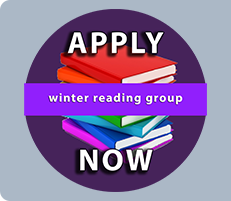Winter 2023 Reading Group
Application Deadline: November 22, 2022
We invite faculty, postdoctoral fellows, and graduate students to participate in a small, focused reading group (consisting of 15 to 18 people) that will meet biweekly during Winter Quarter 2023. The theme for this year is “Global Indigeneities and Sexualities” and will be co-facilitated by Diego Arispe-Bazan (Assistant Professor of Instruction, Anthropology), Enzo Vasquez Toral (PhD Candidate, Performance Studies), and Mary Weismantel (Professor, Anthropology).
The Reading Group will meet five times during the quarter to discuss short texts (for example, 3-4 articles or book chapters/excerpts per meeting) that explore the Reading Group’s theme. Meetings will be held from 5:00-6:30 p.m. on the following Thursdays: January 12th, January 26th, February 9th, February 23rd , and March 9th. It is expected that participants will attend and actively participate in all five of the meetings.
We are currently planning for all five meetings to be held in person, subject to COVID restrictions in place at the time. While the main reward for participation is good company and active intellectual engagement, Northwestern participants who attend regularly (i.e. by attending at least four of the five meetings) will receive a research stipend of $750 at the end of the quarter.
The Theme of the Reading Group
This year, the SPAN Reading Group will explore Queer Indigenous Studies, a burgeoning new area of inquiry that lies at the intersection of two interrelated fields, Sexuality Studies and Global Indigenous Studies. Despite their disparate origins, the two fields are similar in their attention to both oppression and its opposites: Sexuality Studies in its attention to both normativity and queerness; and Global Indigenous Studies in its attention to the effects of genocidal colonialisms, as well as to the liberatory potential of decoloniality and Indigenous futurities. We will explore similarities and commonalities as well as tensions and frictions between the two fields through a series of targeted readings that explore the space between. We review how in colonial settings, Indigenous forms of kinship, gender, and sexuality constitute(d) a fundamental challenge to Western forms of normativity – a challenge met with harsh, unyielding regimes of repression. Nevertheless, memories and traces of these non-European forms of gender and sexuality, and continuities among Indigenous pasts, present and futures, give rise to a rich history and contemporary flourishing of many different Indigenous genders and sexualities. Of particular relevance is the issue of appropriation: What can we learn from one another, and how should we do it? Readings (and viewings) may include academic writing in history, literature, anthropology, art history and performance studies, as well as works of fiction, art, cinema and performance, according to the interests of the participants.
Select preliminary readings:
Barker, J., ed. (2017). Critically Sovereign: Indigenous Gender, Sexuality, and Feminist Studies. Duke University Press.
Morgensen, S. L. (2011). Spaces between us: Queer settler colonialism and indigenous decolonization. U of Minnesota Press.
TallBear, K., & Willey, A. (2019). “Critical relationality: Queer, Indigenous, and multispecies belonging beyond settler sex & nature.” Imaginations: Journal of Cross-Cultural Image Studies, 10(1), 5-15.
Weismantel, M. (2021). Playing with things: Engaging the Moche sex pots. University of Texas Press.
A tentative list of readings has been prepared by the facilitators, but applicants are encouraged to suggest readings as well. Suggestions can be submitted at the time of application as well as throughout the duration of the Reading Group.
 Application Deadline: Tuesday, November 22nd, 2022
Application Deadline: Tuesday, November 22nd, 2022
ALL APPLICANTS must complete a brief online application. Click here to apply.
Questions about the reading group or application process may be sent to Ariel Clark-Semyck at sexualities@northwestern.edu.
For more information on previous years’ reading groups, click here.
